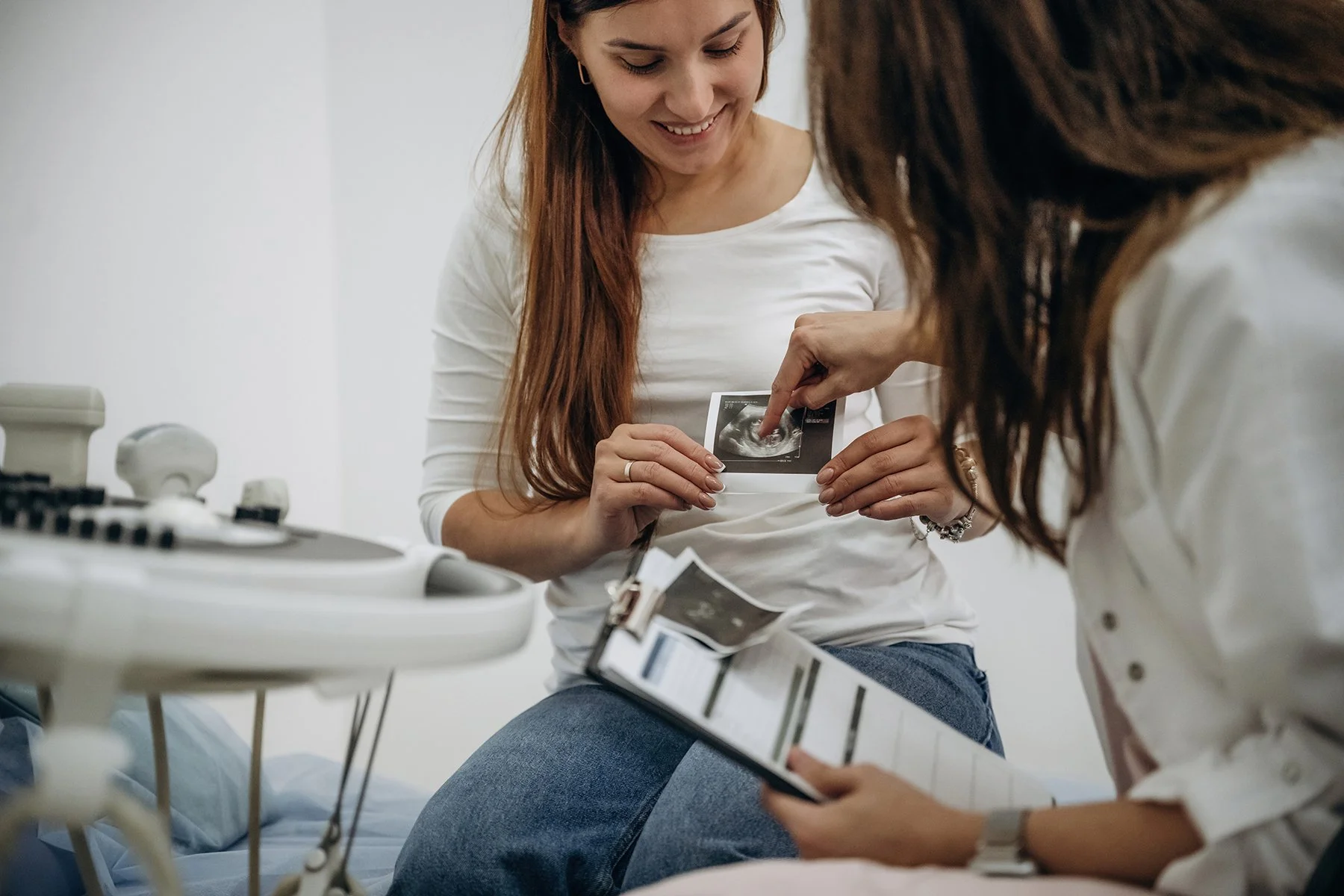What to Expect at Your Early OB Visits
The First Trimester: Then, Now, and the Keepsake That Connects Them
The first trimester sets the tone for your pregnancy journey. Whether you’ve just gotten a positive test or are anxiously waiting for your first ultrasound, those early weeks are filled with anticipation, questions, and big changes. While prenatal care has evolved tremendously over the years—bringing with it new technology, earlier appointments, and endless online information—there’s still something comforting about the tangible. That’s where The Pregnancy Calendar comes in: a keepsake born decades ago that still brings personal connection to your modern pregnancy.
What Happens at Your First OB Appointment Today
If you’re newly pregnant, here’s what to expect at your first prenatal visit:
Blood work & urine sample
Dating ultrasound to confirm your due date
Review of your medical history
Lifestyle & nutrition counseling
You may also go through early screenings and tests between weeks 6–12, including:
Blood type & Rh factor
STI and immunity testing
Optional genetic screening (e.g., NIPT)
Important questions to ask your OB:
What prenatal vitamins should I be taking?
When will I hear the heartbeat?
Are these symptoms normal?
From My Mom’s OB Visit to Mine: What’s Changed—and What Hasn’t
Pregnancy is a journey of milestones. One of the earliest is your very first OB-GYN appointment. When I asked my mom what hers was like, I expected her to say something nostalgic. Instead, she said, “I don’t really remember much.” Classic mom. But then I had to remind her about the little business she co-founded back in the '80s—The Pregnancy Calendar, you know, just a tiny detail. She pulled it out, flipped through the pages, and suddenly—boom—memories unlocked (unfortunately she started the business when she was pregnant with me so my older sister and I don’t have the same paper trail as our baby sister, Caroline). Amazing how that works, right?
Her Experience: Pregnancy in the 1980s
When my mom was pregnant with me, her first prenatal appointment wasn’t until 12 weeks. There was no pee stick to confirm pregnancy at home, no apps, and definitely no weekly ultrasound updates. You called your doctor, waited, and relied mostly on your friends, sisters, and one or two books.
“There wasn’t much to it,” she said. “I didn’t get an ultrasound until 16 weeks. I mostly relied on my OB nursing book and my girlfriends.”
Those letters and phone calls between new moms and newly pregnant women sparked the idea for The Pregnancy Calendar. My mom (a nurse), her best friend Julie, and her sister Beth wanted to create something that gave women weekly guidance—without needing a medical degree. More importantly, it gave women a way to document their journey in real time, with their own handwriting and stories.
My Experience: Pregnancy in the Digital Age (2020’s)
Fast forward to my first OB visit in 2020 (yes, that 2020), and the experience couldn’t have been more different.
I took about eight pregnancy tests before my first appointment. I had apps telling me what size fruit my baby was. I had forums, blogs, and symptom checkers at my fingertips. And yet, I kept my pregnancy quiet until I hit 12 weeks—waiting for that doctor’s confirmation, and the “safe zone” I read about online.
The apps were helpful, but they felt impersonal. I wanted something that reflected my experience—not just generic tips and countdowns. That’s when I turned to The Pregnancy Calendar. It felt a little old-school at first, but something about writing down my cravings (cucumber and cream cheese sandwiches, anyone?) and noting my emotions made it real. It was a place to slow down and connect—a contrast to the overstimulation of modern pregnancy tracking.
Why The Pregnancy Calendar Still Matters Today
In an age of endless screens and instant information, The Pregnancy Calendar stands out as a thoughtful, grounding companion. It bridges the gap between the high-tech and the heartfelt, giving modern moms something timeless: a personal, physical keepsake of their journey.
Here’s what makes it so special:
1. Weekly Insights You Can Trust
Each week offers medically reviewed guidance about what’s happening with your body and baby, written by nurses and doctors—just like it always was.
2. A Keepsake You’ll Cherish
Beyond the medical, it’s a place to write down cravings, dreams, milestones, and moments that might otherwise slip away. Years later, you’ll open it and remember exactly how you felt.
3. Checklists, Reminders, and Real-Life Help
Stay organized with practical tools like appointment trackers, baby registry to-dos, and space for questions—making your prenatal journey less overwhelming.
4. A Legacy of Care
Written by my mother and lovingly updated for today’s parents, The Pregnancy Calendar carries with it a legacy of shared wisdom, sisterhood, and care that spans generations.
From One Generation to the Next
Whether it’s 1985 or 2025, the emotions of that first trimester—hope, uncertainty, excitement—are universal. And while the way we receive prenatal care has changed, the desire to feel connected and remember each step hasn’t.
That’s why The Pregnancy Calendar still belongs in your journey. It’s not just a guide—it’s a time capsule, a tradition, and a love letter to your future self.
Looking for a way to track your pregnancy and treasure every milestone? Explore The Pregnancy Calendar—your week-by-week guide, memory book, and keepsake all in one.



